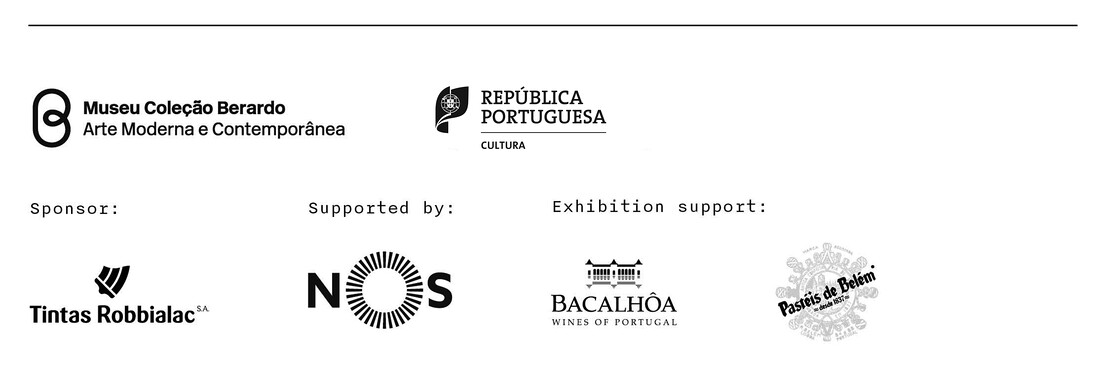Trilogy, Photographs [1989-2004]
October 10, 2017–January 14, 2018
My Little Loves
October 18, 2017–January 28, 2018
In the Fundação Edson Queiroz Collection
October 26, 2017–February 11, 2018
Praça do Império
1449-003 Lisbon
Portugal
Lu Nan
Trilogy, Photographs [1989-2004]
Lu Nan is more than a photographer; he is also an exceptional artist.
His human dimension, his humanist culture, the aesthetic concepts that guide his preparatory approach and the sensitivity and respect with which he captures the astonishing reality seen in his work all bear full witness to this. The Lu Nan’s Trilogy is a modern projection (also already dated in time) of a classical trilogy symbolically represented in Dante Alighieri’s Divine Comedy. Each component part also forms an exemplary projection of what can be, on earth, hell, purgatory and paradise. The only difference is that the photographs that make up the three parts of the Lu Nan’s Trilogy—one depicting the life in mental hospitals (shot between 1989 and 1990), a second shadowing Catholic communities across China’s hinterland (1992 to 1996) and a third in which the photographer tracks everyday life in Tibet (1996 to 2004)—are not part of any fantasy nor do they contain any of the allegories found in the immortal poem penned by the Florentine poet.
Lu Nan’s work over the last 15 years—part of which can be seen in this exhibition—is a sometimes painful, striking realism that impresses, imprints itself on our retinas and lingers for aeons in our memories. We are shown a China at a time somewhat different from the present, but we could equally well be looking at any number of other countries or places on our planet.
Curated by João Miguel Barros
Sharon Lockhart
My Little Loves
For over 20 years, Sharon Lockhart has immersed herself in the daily lives of her subjects to make films, photographs, and installations that capture their uniquely human qualities through studied, choreographed compositions. Her engagement with conditions of childhood and adolescence serve as the foundation of her upcoming exhibition at the Museu Coleção Berardo, My Little Loves, which will open in conjunction with this year’s Doclisboa - International Film Festival, where Lockhart will screen her film Rudzienko (2016), the second film in her Polish trilogy.
Lockhart takes Rudzienko as a point of departure for the successively unfolding exhibition at the Museu Coleção Berardo in which the actions, experiences, and voices of her collaborators play key roles. Included here is an installation of Podwórka (2009), the first leg of the trilogy, as well as a group of works made in collaboration with Milena, the young woman who brought her to the Youth Sociotherapy Center in Rudzienko, Poland. Through this selection of works spanning from 1999 to 2017, Lockhart expands on ideas surrounding children’s rights, ephemerality, and empowerment, which are also addressed in her multifaceted project Little Review, on view in the Polish Pavilion at the 57th Venice Biennale until November 26.
Curated by Pedro Lapa
Co-produced with the Doclisboa’17 - International Film Festival
Brazilian Modernism
In the Fundação Edson Queiroz Collection
This exhibition presents a selection of the wonderful works that compose the Fundação Edson Queiroz Collection, highlighting oeuvres produced between the 1920s and 1960s, both by Brazilian artists and by foreigners residing in the country.
Among the paintings and sculptures displayed in the exhibition are works covering the period from the first modern phase in Brazil, in which artists were still influenced by their European training—including Lasar Segall, Flávio de Carvalho, Anita Malfatti, Vicente do Rego Monteiro and Victor Brecheret—up to the emergence of the Rio de Janeiro Neo-Concrete manifesto in the second half of the 20th century.
The exhibition also features artists interested in seeking an imagery specific to the country, such as Tarsila do Amaral, Cícero Dias, Di Cavalcanti and Candido Portinari. It moves on to highlight the new abstract and formal elements which emerged in the post-war period, represented by Alfredo Volpi, José Pancetti and Maria Leontina. Following this chronologically, the exhibition displays works by members of Grupo Frente and Grupo Ruptura, which accompanied a new phase in Brazilian art, marked by the appearance of the Modern Art Museums in Rio de Janeiro and São Paulo, and the São Paulo International Biennial in 1951.
The exhibition closes with artistic production from the 1950s and 1960s, revealing a variety of artistic expressions which feature heavily in the works of Ivan Serpa, Tomie Ohtake and Iberê Camargo himself, as well as in the radical propositions of artists who had participated in the Rio Neo-Concrete movement. This period was marked by a complete paradigm overhaul, following which Brazilian art proceeded to move in new directions, towards so-called conceptual art.
Curated by Regina Teixeira de Barros
Co-produced with the Fundação Edson Queiroz
Supported by the Brazilian Embassy in Lisbon and Minalba Premium


